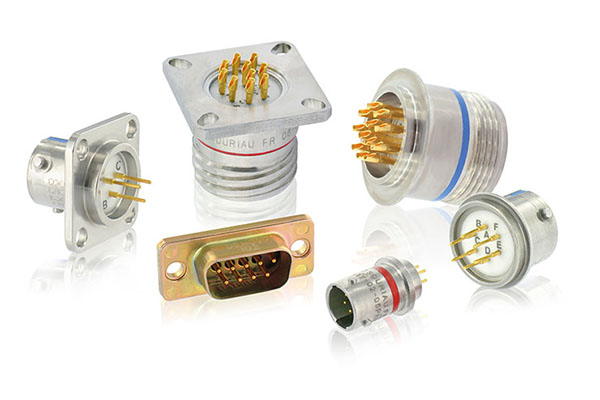In the world of electronics, the ability to maintain a sealed and air-tight connection is critical to ensuring the proper functioning of devices in a variety of industries. This is where hermetic connectors come in. In this article, we will explore the definition, functionality, and applications of hermetic connectors. We will also discuss how they work, the characteristics that make them unique, and how to choose the right hermetic connector for your needs.
What Are Hermetic Connectors?
Definition and Functionality
Hermetic connectors are electronic connectors that are designed to create an air-tight seal to prevent any gases or fluids from entering or exiting a system. This is achieved through the use of a hermetic seal, which is a seal that is completely air-tight and impermeable to gases or liquids. Hermetic connectors are used in applications where maintaining a sealed and protected environment is essential to the functionality and reliability of electronic systems.
Types of Hermetic Connectors
There are several types of hermetic connectors, each with its own unique characteristics and applications. Some of the most common types include:
Glass-to-metal seal (GTMS) connectors
Glass-to-metal seal connectors are created by fusing a glass insulator to a metal conductor. This creates an air-tight seal that is highly resistant to corrosion and is ideal for applications where high levels of reliability and durability are required.
Ceramic-to-metal seal (CTMS) connectors
Ceramic-to-metal seal connectors are created by fusing a ceramic insulator to a metal conductor. These connectors are highly resistant to high temperatures and pressures and are commonly used in aerospace and military applications.
Hermetic feedthroughs
Hermetic feedthroughs are used to transfer signals or power across a hermetic seal. They are commonly used in medical devices, industrial equipment, and other applications where the transfer of power or signals across a sealed barrier is necessary.
Others
Other types of hermetic connectors include glass-sealed connectors, metal-sealed connectors, and compression glass connectors.
Applications of Hermetic Connectors
Hermetic connectors are used in a wide range of applications, including:
Aerospace and Defense
Hermetic connectors are widely used in the aerospace and defense industries due to their ability to maintain a sealed and protected environment in harsh conditions. They are used in avionics, satellites, and other space-based applications, as well as in military equipment.
Medical
Hermetic connectors are used in medical devices where maintaining a sterile environment is critical. They are commonly used in implantable devices, such as pacemakers and defibrillators, as well as in diagnostic and monitoring equipment.
Energy
Hermetic connectors are used in energy applications, such as oil and gas exploration and production, where maintaining a sealed and protected environment is essential. They are also used in renewable energy applications, such as solar and wind power.
Industrial
Hermetic connectors are used in industrial applications where harsh environments and exposure to chemicals or gases are a concern. They are commonly used in sensors, actuators, and other electronic equipment.
Others
Other applications of hermetic connectors include telecommunications, automotive, and consumer electronics.
How Do Hermetic Connectors Work?
The Science of Hermeticity
Hermeticity refers to the ability of a material to maintain an air-tight seal. Hermetic connectors rely on the hermeticity of the materials used in the connector to maintain a sealed and protected environment.
The Hermetic Sealing Process
The hermetic sealing process involves creating a seal that is completely air-tight and impermeable to gases or liquids. This is achieved through the use of materials that have low coefficients of thermal expansion and high melting points, such as glass, ceramics, and metals. The process typically involves heating the materials to a high temperature, fusing them together, and then cooling them down to create a strong and durable bond.
Factors Affecting Hermeticity
Several factors can affect the hermeticity of a connector, including:
Temperature
Temperature changes can cause materials to expand or contract, which can break the hermetic seal. Therefore, hermetic connectors must be designed to withstand a wide range of temperatures.
Pressure
Pressure changes can also affect the hermeticity of a connector, especially in applications where the pressure differential is significant. Hermetic connectors must be able to withstand high pressures and pressure differentials.
Mechanical Stress
Mechanical stress, such as vibration or shock, can cause a hermetic seal to break. Hermetic connectors must be able to withstand mechanical stress and provide a durable and reliable connection.
Characteristics of Hermetic Connectors
Some of the characteristics that make hermetic connectors unique include:
Seal Integrity
Hermetic connectors are designed to maintain a completely air-tight seal, which ensures that no gases or liquids can enter or exit the system.
Durability
Hermetic connectors are highly durable and can withstand harsh environments and extreme temperatures.
Resistance to Environmental Factors
Hermetic connectors are designed to be resistant to a wide range of environmental factors, including temperature, pressure, and mechanical stress.
Electrical Performance
Hermetic connectors must also provide reliable electrical performance, ensuring that signals or power are transferred accurately and efficiently.
How to Choose the Right Hermetic Connector?
Considerations When Selecting Hermetic Connectors
When selecting a hermetic connector, there are several factors to consider, including:
Application Requirements
The application requirements, such as temperature range, pressure range, and mechanical stress, will dictate the type of hermetic connector needed.
Connector Type
The type of hermetic connector needed will depend on the application requirements and the specific characteristics of the connector.
Materials
The materials used in the hermetic connector will affect its performance and durability. Consideration must be given to the type of materials used in the connector.
Connector Size and Shape
The size and shape of the hermetic connector will depend on the specific application requirements and the available space.
Others
Other factors to consider when selecting a hermetic connector include the level of hermeticity required, the electrical performance needed, and the cost of the connector.
Hermetic Connector Suppliers
There are several hermetic connector suppliers that offer a wide range of products for various applications. Some of the leading suppliers include Glenair, Amphenol, and TE Connectivity.
Conclusion
Hermetic connectors are essential components in electronic systems that require a sealed and protected environment. These connectors are used in a wide range of applications, from aerospace and defense to medical devices and industrial equipment. The hermetic sealing process ensures that the connectors maintain a completely air-tight seal, and factors such as temperature, pressure, and mechanical stress can affect the hermeticity of the connector. When selecting a hermetic connector, consideration must be given to the specific application requirements, the type of connector needed, the materials used in the connector, and other factors such as the level of hermeticity and the electrical performance needed. With the right hermetic connector, you can ensure the reliability and durability of your electronic systems.




